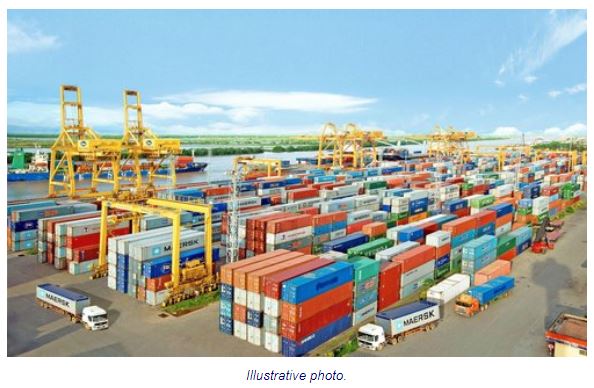US unlikely to impose tariff on Vietnam’s imports: Expert
The US uses three criteria to determine if a country is a currency manipulator. Besides the current account surplus criterion, two other criteria are a bilateral goods trade surplus with the US of at least US$20 billion; and intervention in the foreign-exchange market that exceeds at least 2% of GDP.Vietnam has met two of the three criteria, having a trade surplus with the US that has risen over the last decade to reach US$40 billion in 2018, twice the threshold of US$20 billion. Vietnam’s current account balance with the US has also been rising over the last decade, reaching a surplus of more than 5% of the GDP in the four quarters through June 2018, more than double the threshold of 2%, the US Treasury said.However, its intervention in the foreign-exchange market was lower than 2% of the GDP, which could be the reason for Vietnam being excluded from US list of currency manipulation, Khoi said.
Regarding the escalation of the US – China trade war, Khoi said Vietnam could become an alternative investment destination for investors looking to evade the negative impacts.
However, such benefit will gradually be diminished and turned into negative in mid- and long-term, Khoi warned.
According to Khoi, risks coming from the trade war are not limited to trade issue, but also in the supply chain and technology transfers.
For the time being, Khoi suggested the Vietnamese government focus on stabilizing macro-economic conditions, while adopting a flexible exchange rate policy in the context of the Chinese yuan’s devaluation.
Khoi urged government agencies to enhance trade protection measures to prevent Chinese goods from flooding Vietnam’s market. Meanwhile, it is important to tighten and control the FDI inflows from China, especially from companies using Vietnam as an intermediary for later US exports.
Among 59 countries and territories that made greenfield investments in Vietnam in the first five months of 2019, China was the largest investor with US$1.56 billion, a 450%-increase from a year earlier and accounting for 24.1% of the total newly registered capital, according to Foreign Investment Agency (FIA).
Nguyen Noi, FIA deputy director general, said there has been a shift in investment following US imposing additional tariffs on Chinese imports, adding Asia would be a destination for such flow, including Vietnam.
Noi noted the government has to be cautious over low quality FDI projects or investors deliberately committing origin certificate fraud, causing negative impacts on Vietnam’s business and investment environments.


 English
English




